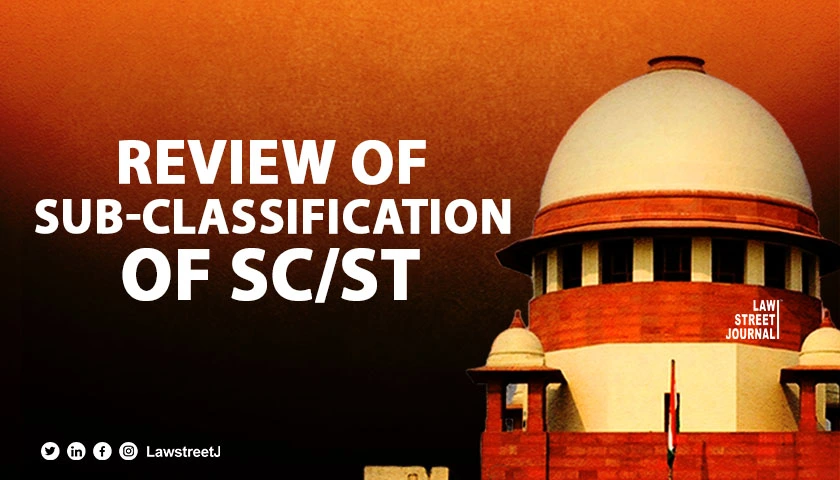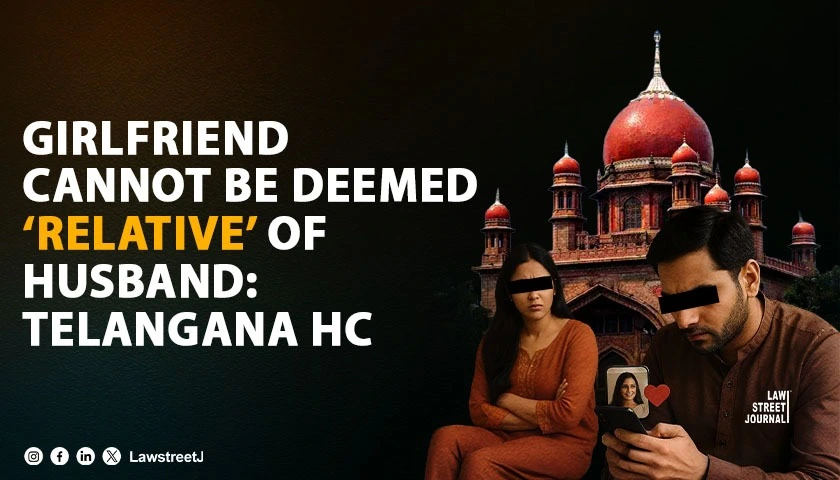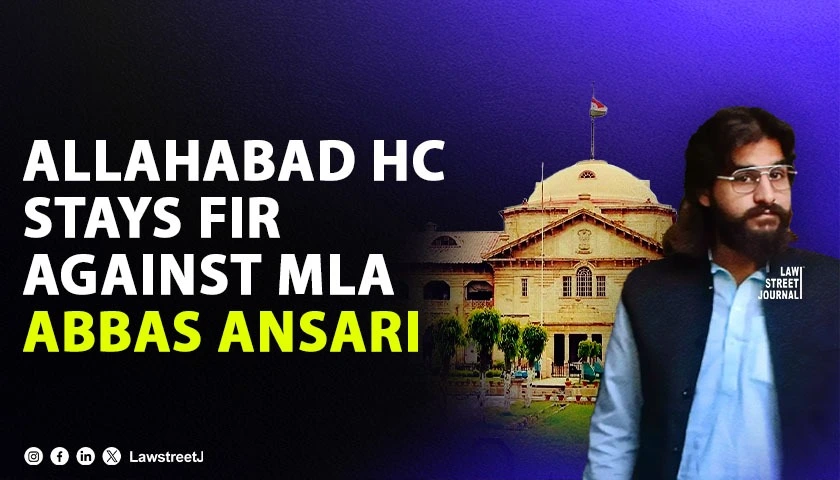NEW DELHI: A plea has been filed in the Supreme Court for review of its August 1, 2024 judgment that allowed the States to sub classify Scheduled Castes and Scheduled Tribes to provide preferential treatment to the disadvantaged groups among them in government jobs and education.
Mumbai-based Jaishri Laxmanrao Patil filed the review petition claiming the States not empowered to carry out such an exercise, since the powers are exclusively vested with the President under Article 341 and 342 of the Constitution to identify the Scheduled Castes and Scheduled Tribes.
The plea said States cannot use their power to reserve seats under Article 15 (4) and 16 (4) of the Constitution for imperial inquiry to upset the list made by the President and this violates Article 341 and 342 of the Constitution.
"If any community has advanced or ceased to be a part of Scheduled Castes or Tribes, the Parliament has got the exclusive power to include in or exclude from such community from the 1950 Order. The concurrent exercise is not contemplated by the States," the petition said.
The petition contended when this court in Indra Sawhney (1992) held that the backward classes can be further sub divided, it meant the Other Backward Classes or the SEBCs and not the Scheduled Castes and Scheduled Tribes.
"The power to deal with the 1950's Scheduled Castes and Scheduled Tribes Orders is not available to anyone, the Union Government or the State (including State Legislature) except the Parliament. Indra Sawhney didn't deal with the sub-division or sub classification of SC/ST and it remain limited to the OBCs," the plea said.
It also said the question of sub classification and exclusion of creamy layer is a question of identification of a backward class and power to identify the Scheduled Castes and Scheduled Tribes is not available to the States by implication of Article 341 and 342 and more specifically due to prohibition contained under clause 2 of those Articles.
The plea also stated even if the phrase, "backward classes" in Article 16(4) is construed to be including the Scheduled Castes and Scheduled Tribes, it will not allow the State to apply the test of backwardness on the SC/STs as they are already defined on the relevant criteria of identification and except untouchability, backwardness of any kind was never a test of their identification.
"Therefore, to further classify them on the criteria other that historic criteria of untouchability will not be permissible. Also, any classification of the castes, races or tribes or parts of or groups within castes, races or tribes included in the Scheduled Castes or Scheduled Tribes, Order, 1950 is not permissible," it said.
The plea said the question of sub-classification is essentially a question of identification as held by this court in Indra Sawhney. For this reason alone, the State has no competence while dealing the SC/STs under Article 16(4) or 15(4) of the Constitution, it asserted.
The petition also contended the question of "creamy layer" was not before this court and the only question was whether the E V Chinnaiah required reconsideration.
"Hence any direction to exclude the creamy layer from the Scheduled Castes and Scheduled Tribes is patently illegal. Also, the said direction runs counter to the Indra Sawhney judgment of the Supreme Court," the plea said.
The petition also said the Constitution doesn't carve out any exception for reservation or affirmative action to Article 15 (1) and 16 (2) of the Constitution except the Scheduled Castes, Scheduled Tribes, Socially and Educationally Backward Classes of People or the Backward Class of Citizens and hence a new group which will be a collection of caste will not be permissible because that group will not be Scheduled Castes, Scheduled Tribes, Socially and Educationally Backward Classes of people or the Backward Class of citizens.
On August 1, 2024, the Supreme Court has held sub-classification of the Scheduled Castes and Scheduled Tribes is constitutionally permissible. It also approved of applying the principle of creamy layer among the SC/STs.

















